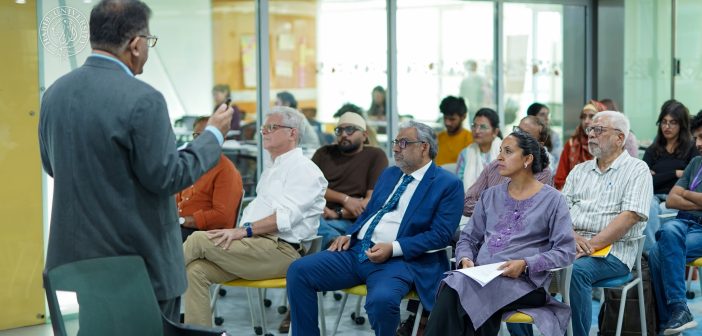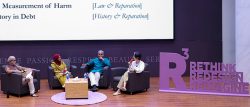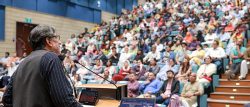Collaborative Actions for Environmental Restoration and Community Empowerment
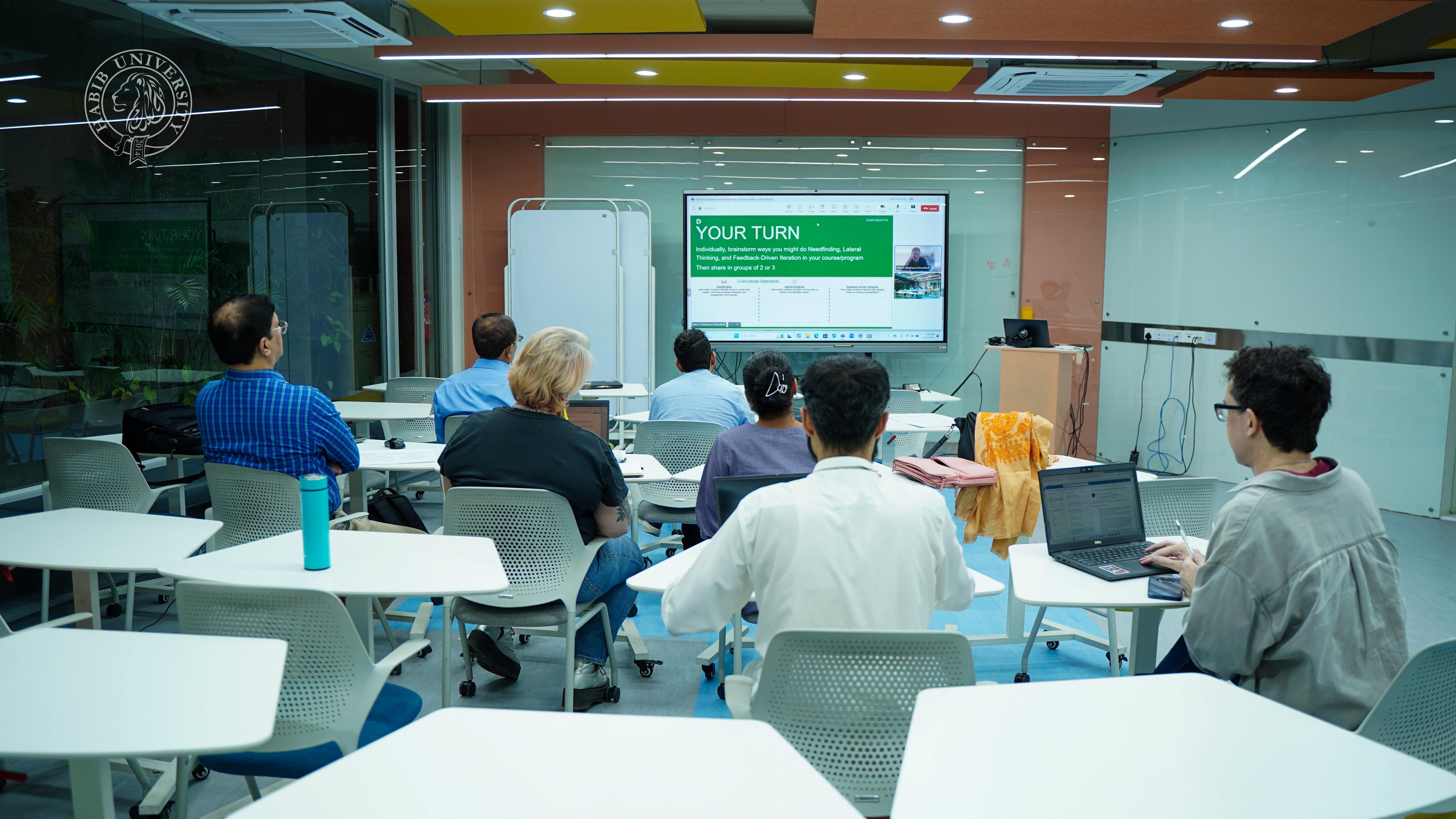
On Wednesday, 27 November 2024, The Playground and urban planner and Habib faculty, Farhan Anwar, in collaboration with Shehri-Citizens for a Better Environment, brought together stakeholders for a consultative workshop on urban forestation. The event gathered 50 participants, including directors, faculty, staff, alumni from Habib University, media representatives, NGOs, researchers, public administrators, and members of civil society.
Mr. Farhan Anwar, Assistant Professor of Practice in the Social Development and Policy Program at Habib University and Advisor to The Playground, curated and organized the session.
The event began with an address by Ms. Maleeha Habib, Director of The Playground, a transdisciplinary center for design and innovation. She articulated Habib University’s mission of fostering access to education and promoting values of Yohsin—thoughtful self-cultivation, holistic knowledge, community service, and giving back. Emphasizing reparative futures, she spoke about the need to analyze, understand, and heal the environment with empathy, honesty, and inclusivity. She highlighted harmful practices, such as excessive trimming of plants, uprooting trees, and disrupting soil through “godai,” which compromise its ability to retain moisture and support life.
Mr. Sameer Hamid Dodhy, Vice Chairperson of Shehri-Citizens for a Better Environment, shared insights on the NGO’s voluntary efforts to restore amenity plots and combat encroachments on public spaces. He presented Habib University with a three-volume set of Shehri’s documentation on Karachi’s amenity plots.
Mr. Riaz Ahmed Wagan, Chief of Forests, Mangroves, and Rangelands, Government of Sindh, explained the distinctions between rangelands, forests, and mangroves, highlighting their economic benefits and the challenges posed by ecosystem fragmentation. He noted his department’s efforts to promote afforestation by offering subsidized saplings.
Ms. Zahra Ali, Founder of Learning Garden and Social Behavior Change Consultant at UNICEF, emphasized the importance of preserving indigenous knowledge and designing nature-based solutions. She shared her experience with horticulture therapy and healing gardens in schools, underscoring their simplicity and transformative potential.
Architect and environmentalist Tariq Alexander Qaiser highlighted the challenges posed by capital-driven developments, which often come at the expense of ecosystems. Despite the support from the Chief Conservator’s office, he noted systemic limitations driven by financial interests.
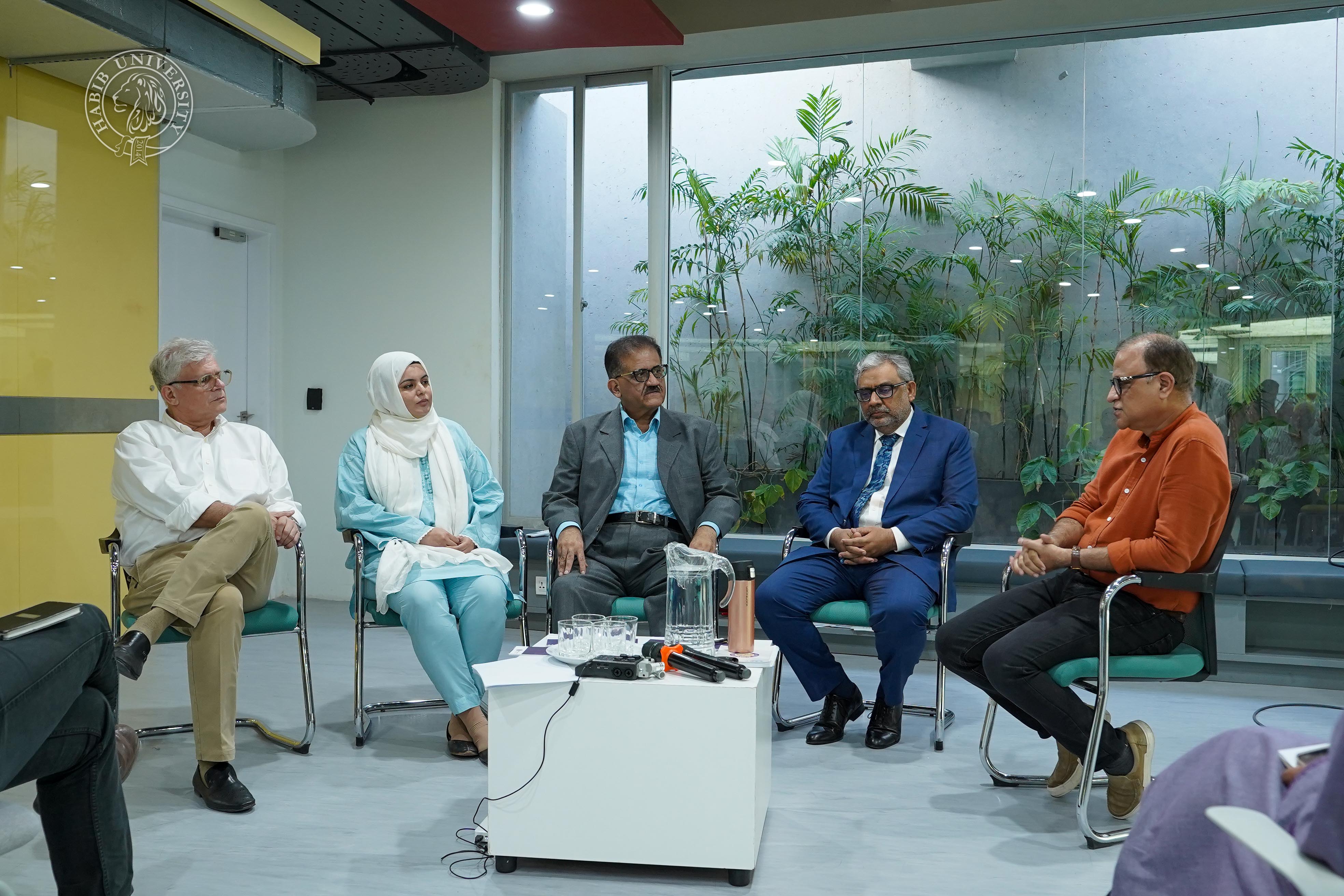
The panel discussion, moderated by Mr. Anwar, featured perspectives from Mr. Wagan, Mr. Dodhy, Ms. Ali, and Mr. Qaiser. The discussion stressed the significance of multi-stakeholder collaboration, data-driven decision-making, and community engagement in urban greening campaigns.
In his closing remarks, Mr. Anwar called for the development of an open-access repository of knowledge products from academia, civil society, and government to support informed decision-making. He advocated for reviving Karachi’s indigenous flora and fostering resilience through collaborative efforts.
The event concluded with Dr. Sahaab Bader Sheikh, Program Director of the Social Development and Policy Program at Habib University, presenting mementos to the moderator and panelists.
Students were encouraged to utilize social media to advocate for environmental causes, such as protecting public spaces and countering misuse. The session emphasized the role of academia in designing practical solutions, like visual planting guides and localized climate change research, to empower society at all levels.
By fostering collaboration and collective action, this initiative strives for a greener, more livable Karachi. Learn more about the Social Development and Policy program at Habib University and how it equips you to make a lasting impact.

